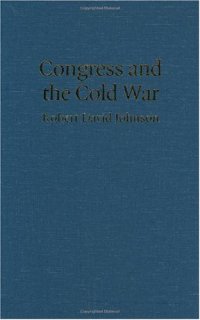
This book challenges the popular and scholarly image of a weak Cold War Congress, in which the unbalanced relationship between the legislative and executive branches culminated in the escalation of the U.S. commitment in Vietnam, paving the way for the passage of the War Powers Act in 1973. It evokes a more flexible conception of the congressional role in foreign policy, focused on three facets of legislative power: the use of spending measures; the internal workings of a Congress increasingly dominated by subcommittees; and the ability of individual legislators to affect foreign affairs by changing the way that policymakers and the public consider international questions.
Download the book Congress and the Cold War for free or read online
Continue reading on any device:

Last viewed books
Related books
{related-news}
Comments (0)